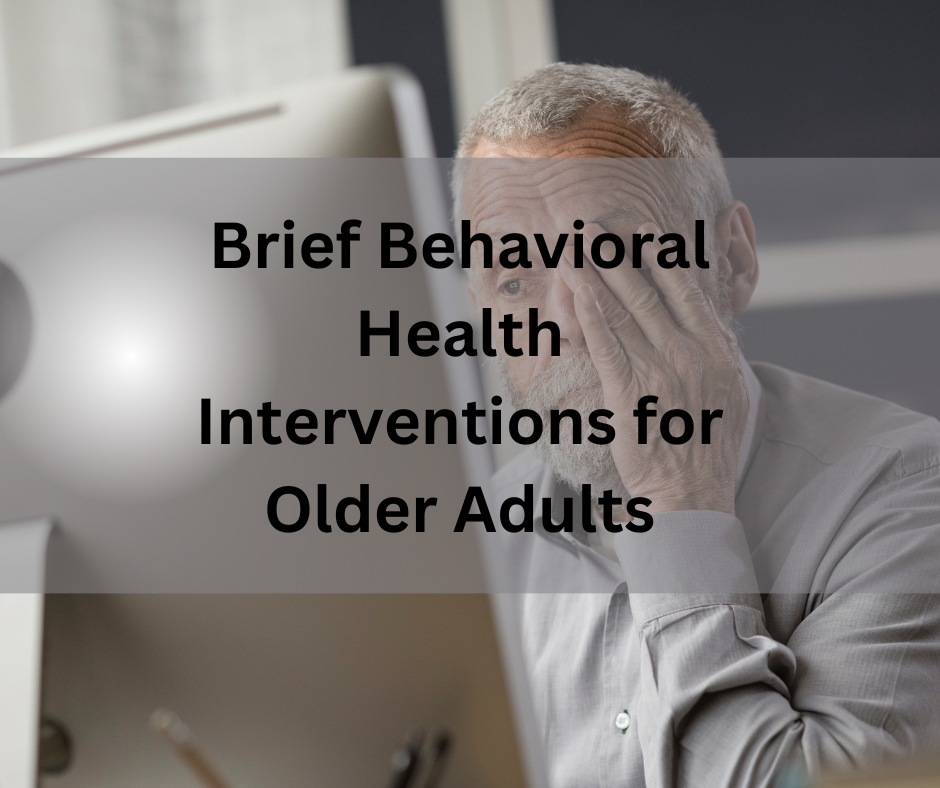
Older adults are accessing behavioral health and substance use services in increasing numbers. This trend is expected to increase.
This increase is due to a number of factors, these include the aging of baby boomers who have been more open to addressing behavioral health issues in the past and are doing so now as older adults. Baby boomers comprise a generation that used substances in their youth and continue to do so and may now be encountering challenges related to their usage. The pandemic has also had a negative impact on older adults as the result of increased social isolation leading to increased mental health and substance use issues.
A significant number of older adults seek assistance through primary care and contact with a variety of health care providers. The advent of integrated healthcare has presented the opportunity to offer older adults assistance with these issues within the context of the health care delivery system. A number of brief evidence-based approaches have been developed that can be delivered in health-related settings and the response to these approaches has been positive.
This webinar will highlight common behavioral health and substance use disorders encountered by the older adult population and provide approaches that can be employed by healthcare and community-based professionals.
At the conclusion of this webinar, participants will be able to:
• Describe the aging process as it relates to the physical, emotional, and social areas of development
• Identify and explain common behavioral health and substance use issues that older adults encounter during the aging process
• Identify misconceptions of aging and stigma and how it impacts addressing behavioral health and substance use among older adults
• Identify brief strategies that can be used to address behavioral health and substance use issues and can be employed by practitioners in healthcare and community-based agencies.
Kenneth Flanagan

Dr. Kenneth Flanagan is an Associate Professor in the Department of Social Work at the University of North Dakota. He currently serves as a curriculum developer for the Mountain Plains Mental Health and Addiction Technology Transfer Centers. Dr. Flanagan holds a license as a clinical social worker and provides counseling and behavioral management services with a clinical focus on depression, anxiety, trauma, relationship issues, and chronic pain. He received his MSW and Ph.D. from The Ohio State University. Dr. Flanagan has held a range of clinical and administrative positions in healthcare and community-based organizations.